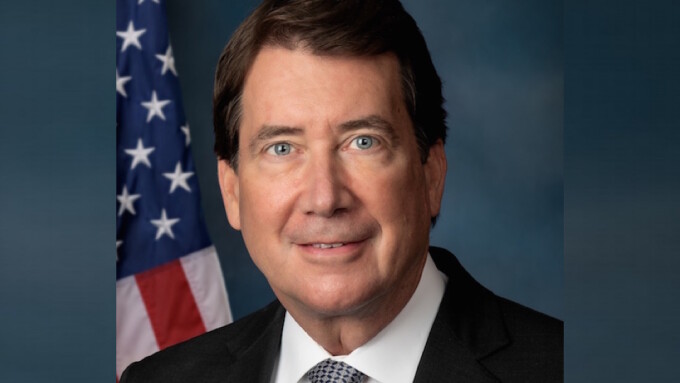WASHINGTON — U.S. Senator Bill Hagerty (R-Tennessee) has unveiled a bill to repeal Section 230 — the so-called “First Amendment of the Internet” — and replace it with something he calls “Section 232.”
His “21st Century Foundation for the Right to Express and Engage in Speech Act,” or "21st Century FREE Speech Act" for short, proposes replacing Section 230 immunity that protects platforms from liability arising from third-party uploads with a completely different regulatory framework that would change the nature of online communication as we know it.
Hagerty declared intention is to “to repeal section 230 of the Communications Act of 1934 and ensure reasonable, non-discriminatory access to online communications platforms.”
Redefining Internet Platforms as 'Common Carriers'
The lengthy preamble of Hagerty’s bill claims that Section 230 allows “interactive computer services” (presumably platforms like Facebook, Twitter and YouTube) to drive “control and censorship” instead of encouraging “the development of technologies which maximize user control over what information is received by individuals, families and schools who use the internet and other interactive computer services.”
Hagerty’s bill also attempts to establish as U.S. federal policy the act of “facilitat[ing] the development and utilization of blocking and filtering technologies that empower parents to restrict their children’s access to objectionable or inappropriate online material.”
The bill does not define what Hagerty considers “objectionable or inappropriate online material.”
The proposed FREE Speech Act also attempts to redefine “the major internet communications platforms” as entities “which function as common carriers in terms of their size, usage and necessity.”
These pseudo-“common carriers,” Hagerty said, must be “available to all users on reasonable and non-discriminatory terms free from public or private censorship of religious and political speech.”
In quite explicit terms, Hagerty’s bill establishes a protection from censorship of “religious and political speech” while at the same time encouraging the censorship of “objectionable and inappropriate online material.”
The Shadow of Obscenity Prosecutions
Moreover, Hagerty’s bill mandates that government regulation on the internet ensures “vigorous enforcement of federal criminal laws to deter and punish trafficking in online obscenity, stalking and harassment.”
Reviving “obscenity prosecutions” has been part of various Republican platforms over the last few election cycles, although former-President Trump’s Attorneys General did not go beyond making speeches calling for it.
After mandating that these “interactive computer services” may not “make or give any undue or unreasonable preference or advantage to any particular person, class of persons, political or religious group or affiliation, or locality; and may not subject any particular person, class of persons, political or religious group or affiliation, or locality to any undue or unreasonable prejudice or disadvantage,” Hagerty also would like these platforms to “disclose, through a publicly available, easily accessible website, accurate material regarding the content management, moderation, promotion, account termination and suspension, and curation mechanisms and practices of the company.”
Moreover, Hagerty retains the Section 230 provision giving platforms immunity of liability “on account of any action voluntarily taken in good faith to restrict access to or availability of material that the provider or user considers to be obscene, lewd, lascivious, filthy, excessively violent, harassing, promoting self-harm, or unlawful, whether or not such material is constitutionally protected.”
'The Form of Immorality Which Has Relation to Sexual Impurity'
Hagerty’s bill also defines “the terms ‘obscene,’ ‘lewd,’ ‘lascivious,’ and ‘filthy’ with respect to material that, taken as a whole, "appeals to the prurient interest in sex or portrays sexual conduct in a patently offensive way; and does not have serious literary, artistic, political or scientific value; depicts or describes sexual or excretory organs or activities in terms patently offensive to the average person, applying contemporary community standards; or signifies the form of immorality which has relation to sexual impurity, taking into account the standards at common law in prosecutions for obscene libel.”
This section of Hagerty’s bill proposal would essentially enshrine a peculiarly vague notion of sexual content (i.e. “signifies the form of immorality which has relation to sexual impurity”) and would turn the new FREE Speech Act into an active call for state and corporate censorship.
Main Image: Sen. Bill Hagerty (R-Tennessee)




